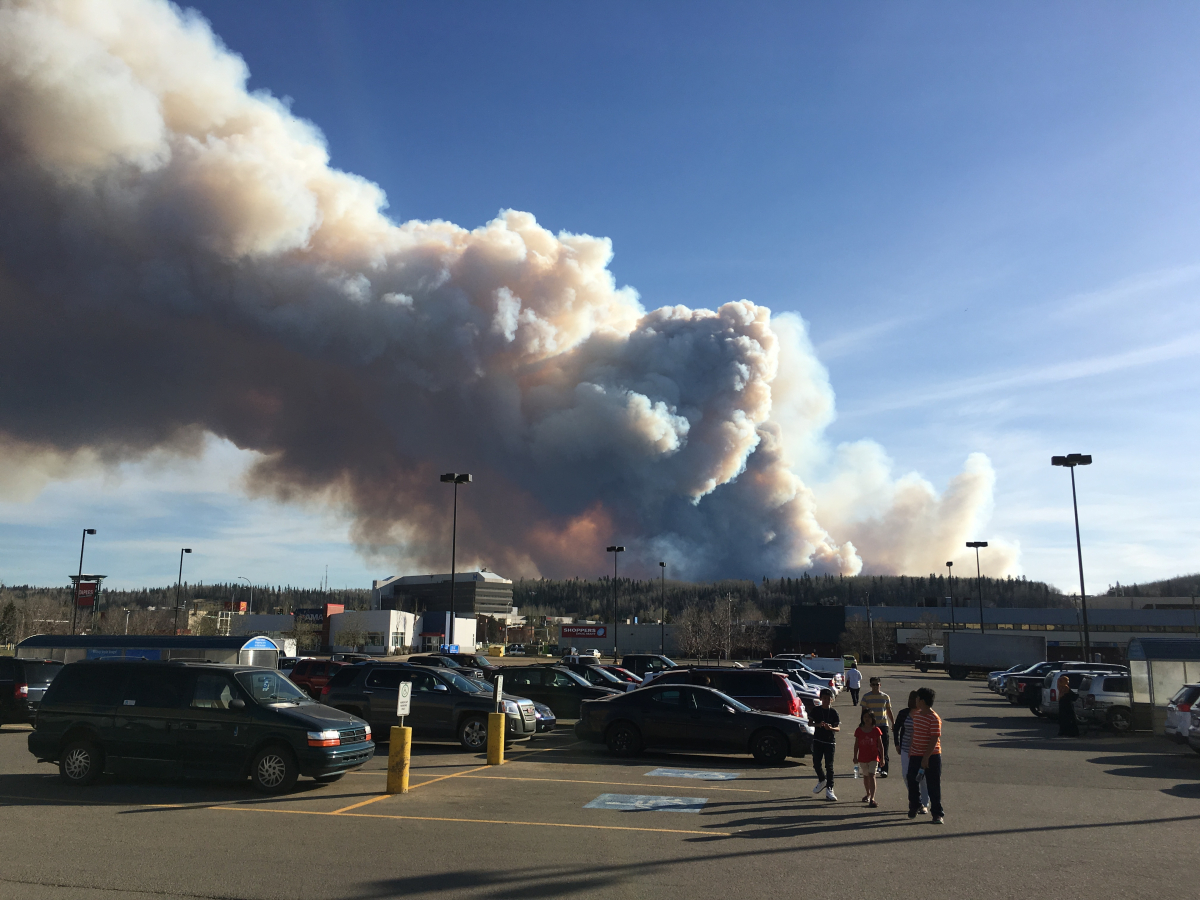Support strong Canadian climate journalism for 2025
Wildfire smoke is linked to increased rates of dementia, according to a new study that further strengthens medical professionals' understanding of the links between climate change and negative health impacts.
Researchers analyzed more than 1.2 million people’s health records in California from 2009 to 2019. All members of the study were over 60 years old and had not been previously diagnosed with dementia. Using air quality data, satellite imagery and machine learning, the researchers identified the air pollution people were exposed to, and found dementia diagnoses increase the more people are exposed to wildfire smoke.
Researchers from the Hospital of the University of Pennsylvania and University of Washington blame “fine particulate matter” in the air. Wildfire smoke, vehicle tailpipe emissions, and fossil fuel power plants all create air pollution that includes these tiny particles. The technical term, PM2.5, refers to fine particulate matter that is microscopic — 30 times smaller than the width of an average human hair.
In an interview with Canada’s National Observer, Dr. Sehjal Bhargava, a family physician in Ontario who also works with the Canadian Association of Physicians for the Environment, said the research suggests the tiny particles in wildfire smoke are so small they can pass through the blood-brain barrier — a tight layer of cells that protects the brain from potentially harmful substances.
“We know that this is a risk to our central nervous system because [tiny particles] can pass through that blood-brain barrier,” she said. Once inside the brain, the particles can cause inflammation and “oxidative stress,” which damages cells and “has been linked to dementia rates.”
The researchers found dementia diagnoses are more strongly correlated with exposure to wildfire smoke than other sources of PM2.5, suggesting specific chemicals in wildfire smoke pose more of a health threat than previously understood.
The findings contribute to a growing body of literature linking air pollution to significant health risks. Earlier this month, a McGill University study linked “ultrafine particles” — smaller than PM2.5 — from vehicle and industrial emissions to 1,100 premature deaths in Toronto and Montreal alone.
The wildfire study’s authors presented their findings this week at the Alzheimer’s Association International Conference in Philadelphia.
“Previous research has found that exposure to PM2.5 is associated with dementia, but in light of our large, long-term study, it’s apparent the risk from exposure due to wildfire smoke is an even bigger concern,” said Dr. Holly Elser, the study’s lead author and a neurology resident at the Hospital of the University of Pennsylvania, in a statement.
She suggested fine particulate matter created by wildfires may be more harmful to human health because they contain a greater concentration of toxic chemicals, and are typically even smaller than other PM2.5, making it easier to pass the blood-brain barrier.
Another author of the study, Dr. Joan Casey with the University of Washington’s department of environmental and occupational health sciences, said in a statement the findings were most pronounced among people of racial or ethnic minority groups in high poverty areas — and that efforts to prevent dementia should include working to reduce exposure to wildfire smoke.
Dr. Bhargava said a crucial step to limiting peoples’ exposure to wildfires is to phase out fossil fuel use and production. Steadily pumping the atmosphere with greenhouse gases by burning fossil fuels is warming the climate, making regions experience worse droughts with increased risk of wildfires.
“We know that even if we were to stop pumping chemicals from combustion of fossil fuels into the atmosphere we would see air quality improvement, and over time you'd see the normalization of weather patterns and less predisposition to these wildfire creating conditions,” she said.
“Physicians need to be aware of this, people need to be aware of this, and there needs to be direct action taken by governments to limit the harms associated with exposure to climate related health harms,” she added.
The headline to this story has been clarified to make it clear that wildfire smoke increases the risk of dementia.







Comments
Over the past 50 yrs or so, air quality in many urban centres has improved. If pollution from wildfires is reversing those gains and causing an increase in dementia, then would it follow that the reductions in air pollution over recent decades led to a decrease in dementia? If data were available on that, then that would be a way to test this theory.